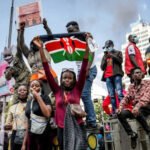Civil society organisations (CSOs) and the media in Zimbabwe have been urged to strengthen the monitoring and accountability of the extractive sector in the country.
The call was made at a meeting organised by the Zimbabwe National Editors Forum (ZINEF), in collaboration with the Zimbabwe Coalition on Debt and Development (ZIMCODD).
Addressing the meeting, ZIMCODD Executive Director, Janet Zhou, said US$32 billion had been lost as a result of illicit financial flows (IFFs) in the past two decades in Zimbabwe.
‘That money could have been used for improving social services delivery. There is a need to look at Zimbabwe’s economic model’, Zhou said.
‘We need a people-centred extractive economy. Those in SMEs and rural areas are suffering. CSOs and media should upscale their advocacy to a higher level.
‘We need to put a human face to the stories in the extractive sector. There is a need for collaboration across the sectors’.
Secretary-General of the Zimbabwe Union of Journalists (ZUJ), Foster Dongozi, said because of IFFs, Zimbabwean teachers were incapacitated despite the availability of abundant natural resources in the country.
He highlighted the need to interrogate how resources are being used, and to strengthen partnerships and solidarity on exposing corruption.
Also speaking, Programme Director at TrustAfrica, Briggs Bomba, said, ‘The access to education, health, and basics of life in Africa is hampered by IFFs. It is estimated that the continent loses US$100 billion every year to IFFs.
‘The gold value chain accounts for 70 percent of IFFs in the extractive sector. The Africa Mining Vision calls on transparency. It emphasises the need to invest in natural resource revenue for economic growth’.
Source: ZW News
Photo source: Parolan Harahap






